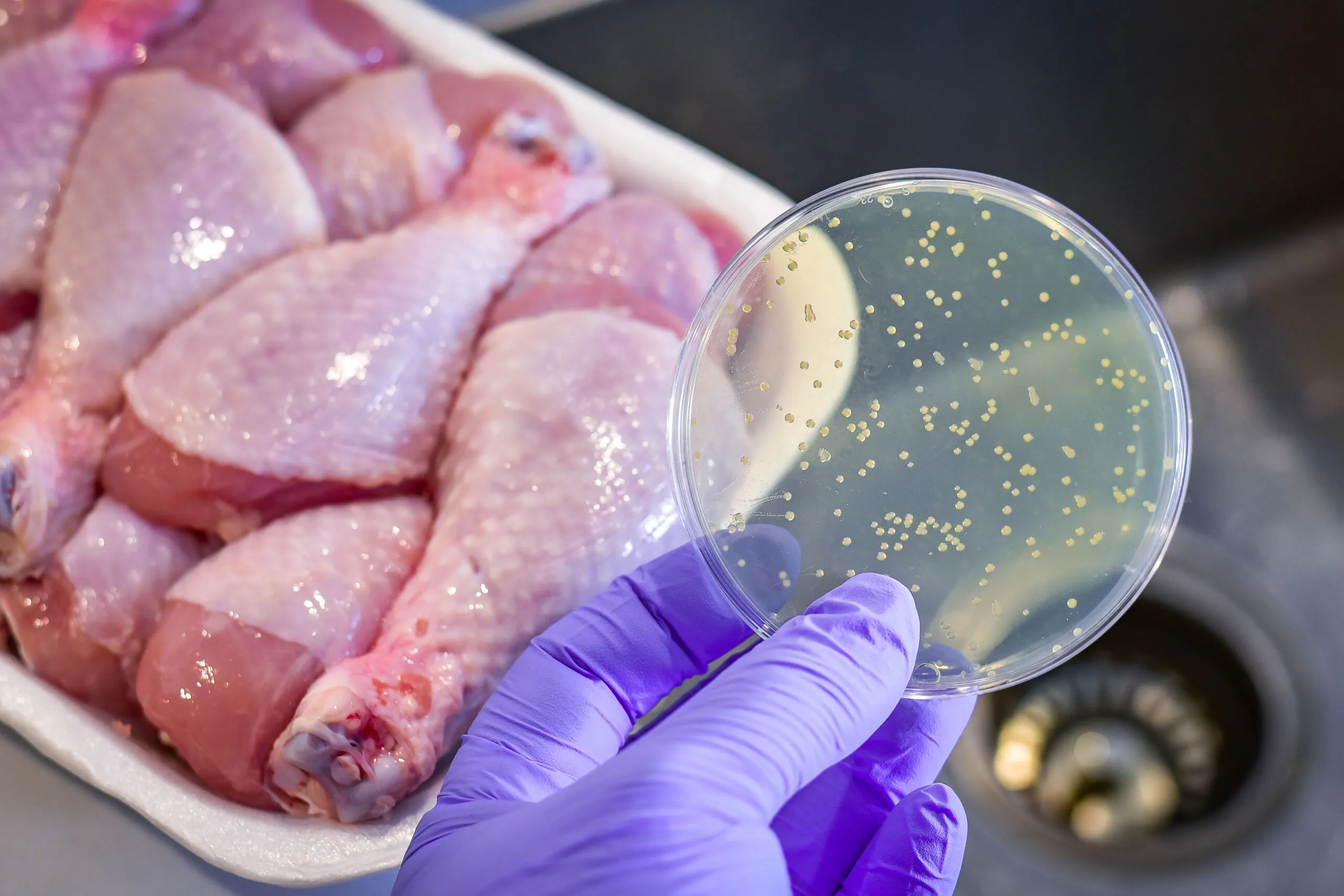
Authorities are investigating the theft of 100,000 eggs, valued at $40,000, from a trailer outside Pete & Gerry’s Organics in Greencastle, Pennsylvania. The theft occurred around 8:40 p.m. Saturday, with no immediate suspects or clear explanation of how such a large quantity was stolen unnoticed.
The rising cost of eggs, driven by bird flu outbreaks and increased holiday demand, has made them a valuable commodity. The price of eggs in the U.S. has surged by nearly 50% over the past year, affecting both consumers and businesses, including Waffle House, which recently added a 50-cent surcharge per egg to offset costs.
Pete & Gerry’s Organics, a company that partners with over 200 family-owned farms across multiple states, has assured that they are taking the matter seriously and are working with law enforcement to resolve it.
State Police from the Chambersburg barracks are leading the investigation, but details remain scarce. Officials have not disclosed whether surveillance footage or eyewitness accounts provide any leads. As authorities work to track down the culprits, questions remain: How was such a large-scale theft executed, and where did the eggs go?
Fighter for Health Freedom: RFK Jr. Moves Closer to Leading HHS
The Senate Finance Committee voted 14-13 along party lines to advance Robert F. Kennedy Jr.’s nomination as Secretary of Health and Human Services, setting up a contentious Senate floor vote. Democrats unanimously oppose Kennedy, meaning he can afford to lose at most three Republican votes. His nomination has been highly controversial due to his past pro-abortion stance and skepticism of vaccines.
During his confirmation hearing, Kennedy assured Republican senators he would enforce President Trump’s pro-life policies, despite previously supporting late-term abortion. Democrats questioned his apparent shift on the issue, while Republicans debated his fitness for the role given his history of vaccine skepticism. Senator Bill Cassidy, initially uncertain, ultimately supported Kennedy after receiving commitments from the administration.
Democrats, including Senator Bernie Sanders, challenged Kennedy on his past anti-vaccine rhetoric, referencing merchandise from a nonprofit he founded. Kennedy maintained he is not anti-vaccine and stated his children are vaccinated.
Meanwhile, Kennedy’s former running mate, Nicole Shanahan, warned senators that opposing his confirmation could impact their reelection. Previously an independent presidential candidate, Kennedy dropped out to endorse Trump, joining him in launching the “Make America Healthy Again” movement. The final Senate vote will determine his confirmation.
Weighing In? Here’s When to Do It for the Most Accurate Results
If 2025 is your year for a weight loss journey, remember—your progress isn’t just about the number on the scale! While weighing yourself can be useful, it’s just one piece of the puzzle. Tracking other factors like body measurements and how you feel physically can give a more complete picture of your progress.
Best Time to Weigh Yourself
For the most consistent and accurate reading, step on the scale first thing in the morning, after using the restroom, but before eating or drinking anything. This is when your body has fully processed the previous day’s intake, giving you a clearer picture of your weight.
Avoid these Times
While there’s no “wrong” time, weighing yourself after a big meal, drinking lots of fluids, or intense exercise can cause temporary fluctuations. Menstruation can also lead to hormonal shifts that may affect the number on the scale.
Tips for Accuracy
- Weigh yourself once a week at the same time of day.
- Place your scale on a flat, solid surface for stability.
- Stand barefoot with even weight distribution.
- Wear minimal clothing (or the same outfit each time) for consistency.
When to Ditch Your Scale
If weighing yourself causes stress, anxiety, or negative thoughts, stepping away is okay. Your well-being matters more than any number!
Trump’s Vision for Gaza: A Bold, Game-Changing Plan Without U.S. Troops
 President Donald Trump has once again demonstrated his leadership on the world stage, unveiling a bold and visionary plan for Gaza that would see Israel hand over the region to the United States after the conflict ends. Under this plan, Gaza’s residents would be relocated to safer, more prosperous communities, eliminating the need for any U.S. military presence.
President Donald Trump has once again demonstrated his leadership on the world stage, unveiling a bold and visionary plan for Gaza that would see Israel hand over the region to the United States after the conflict ends. Under this plan, Gaza’s residents would be relocated to safer, more prosperous communities, eliminating the need for any U.S. military presence.
Addressing the nation on his Truth Social platform, Trump clarified that once Israel secures the region, it would be turned over to the U.S., where it could be transformed into the “Riviera of the Middle East.” He emphasized that Palestinians would already be resettled in modern, secure homes elsewhere, ensuring a brighter future for all. “No soldiers by the U.S.!” Trump declared, reinforcing his commitment to keeping American troops out of unnecessary conflicts.
Israeli leaders have welcomed the plan, with Defense Minister Israel Katz ordering the military to prepare for a voluntary relocation effort, providing residents with the opportunity to leave Gaza for better opportunities abroad. “I welcome President Trump’s bold plan,” Katz stated, emphasizing that those who wish to emigrate should be given the freedom to do so.
Despite predictable backlash from some Middle Eastern leaders, including Saudi Arabia and Jordan, Trump remains steadfast in his approach. Meanwhile, Hamas,known for its extremist tactics—has opposed the plan, falsely framing it as forced displacement. However, Trump’s proposal offers a pragmatic and peaceful alternative to continued warfare, focusing on economic prosperity and security rather than endless conflict.
Fluoride, Bad Bacteria & Brain Decay: The Scary Truth About Your Mouth
New research from the University of Exeter reveals a powerful link between oral bacteria and brain function as we age. The study found that certain bacteria support memory and attention, while others may increase the risk of Alzheimer’s disease.
Researchers pinpointed two key ways oral bacteria impact brain health. First, harmful bacteria can enter the bloodstream and potentially damage the brain. Second, an imbalance between beneficial and harmful bacteria can reduce the body’s ability to convert dietary nitrates into nitric oxide, a chemical essential for brain communication and memory.
The Role of Beneficial and Harmful Bacteria
The study found that individuals with higher levels of Neisseria and Haemophilus bacteria performed better on cognitive tests and had higher mouth nitrite levels. However, those with greater amounts of Porphyromonas (linked to gum disease) were more likely to have memory issues, and Prevotella was more common in people carrying the APOE4 gene, a known Alzheimer’s risk factor.
How Fluoride May Harm Beneficial Bacteria
While fluoride is widely used to prevent cavities, research suggests it may negatively impact beneficial oral bacteria, potentially worsening brain health in the long run:
- Disrupts Microbial Balance: Long-term use of fluoride-containing dental products has been shown to alter the bacterial composition and functional profiles of human dental plaque. These changes can reduce bacterial diversity, potentially making it harder for beneficial bacteria to thrive.
- Inhibits Nitric Oxide Production: Fluoride exposure may decrease the production of nitric oxide (NO), a molecule essential for various physiological functions, including vascular health and neurotransmission. Reduced NO levels can impair brain function and cognitive abilities
- Promoting Fluoride-Resistant Harmful Bacteria: Certain oral bacteria, such as Streptococcus mutans, can develop resistance to fluoride through genetic adaptations. This resistance may allow harmful bacteria to thrive even in the presence of fluoride, potentially leading to increased inflammation and neurotoxic effects.
Early Detection and Prevention
The study, published in PNAS Nexus, analyzed 110 participants over 50, measuring their bacterial levels and cognitive function. The findings suggest that routine dental screenings could help detect early brain health decline.
Professor Anne Corbett emphasized the potential for dietary changes, probiotics, and improved oral hygiene to maintain a healthy bacterial balance and reduce dementia risk. These insights highlight the importance of preserving beneficial bacteria—and rethinking how fluoride affects long-term health.
Foodborne Illnesses Send 53,000 to Hospital and Kill Over 900 Americans Every Year 
America’s food safety game is a mess – people are paying the price with their lives. More than 900 deaths and 10 million cases of foodborne illness hit the U.S. every year, courtesy of six usual suspects: salmonella, listeria, E. coli, norovirus, campylobacter, and clostridium perfringens. These microscopic killers send over 53,000 people to the hospital annually, racking up a jaw-dropping $75 billion in costs tied to medical care, lost work, and long-term health issues. And that’s just what gets reported. Experts say the real numbers are way worse.
Take salmonella, for example: for every confirmed case, 29 more fly under the radar. Outbreaks are relentless – cucumbers, eggs, deli meat, carrots, and even McDonald’s onions have been host to deadly bacteria in the past year. The fragmented oversight system doesn’t help either, with 30 overlapping food safety laws and 15 different federal agencies tangled in bureaucracy. Since 2007, the GAO has been calling for a national strategy, but here we are – still waiting while tainted food quietly takes lives. The bottom line? The U.S. food supply is a Russian roulette!

